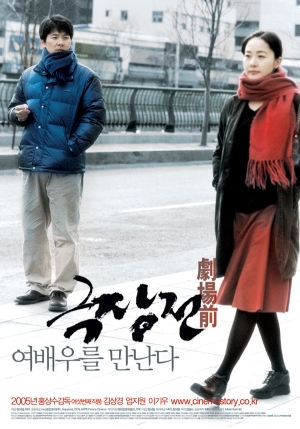
TALE OF CINEMA
Korea, 2005, 89 minutes. Colour.
Directed by Sang- Soo Hong.
After his quite misogynist though cleverly structured film, Woman is the Future of Man, there is a bit of apprehension about A Tale of Cinema. No need. This is again a cleverly structured film but it portrays both men and women equally.
The first part of the film seems self-contained and offers a surprise to the audience. It is the story of a young student who meets his girlfriend again after two years. They share an evening together, eating, talking, walking, attempt at love-making after which he suggests they both commit suicide. Things do not go as planned.
The second part of the film focuses specifically on cinema, a poor would-be director and his infatuation with an actress. The two parts of the film are significantly inter-connected.
This is a more quiet Seoul than we see in the action and crime films that have emerged from Korea. Rather, these are more personalised stories with a cinema background where the intrinsic interest is in the characters and their problems. To that extent, it is a smaller and more modest production and well done.
1. Korean storytelling? The previous films of the director? His interest in ideas? In encounters between people? In their discussions and changing attitudes?
2. The musical score, the city landscapes?
3. Movie-making, cinema, the difference between films and reality? The people involved, actors, directors? Their fortunes? The audience, the response to films? The response to seeing actors and actresses in real life?
4. The tale, the brothers, the voice-over, the girl at the shop? Wandering? The mother, the bar, drinking? Permissions? The sexual encounter or not? Issues of life and death, the pills, the attempts, the wake? The phone call, the father, the family, the mother and the attack? The roof?
5. The retrospect, the two directors talking? The family, the money, the shop, the actress and her career, hospital, dinner, cash, the drink? With the girl, the scars, sexuality, the hospital?
6. The visit of the director, the will to live?
7. The effect of the conversations and encounters on the characters? On audience empathy and understanding?